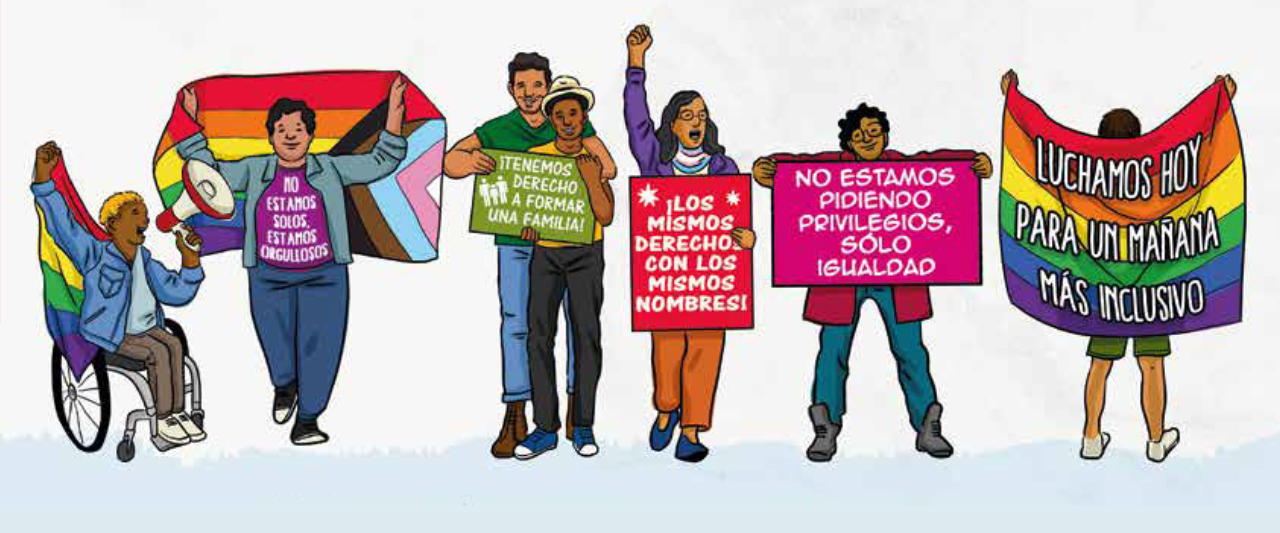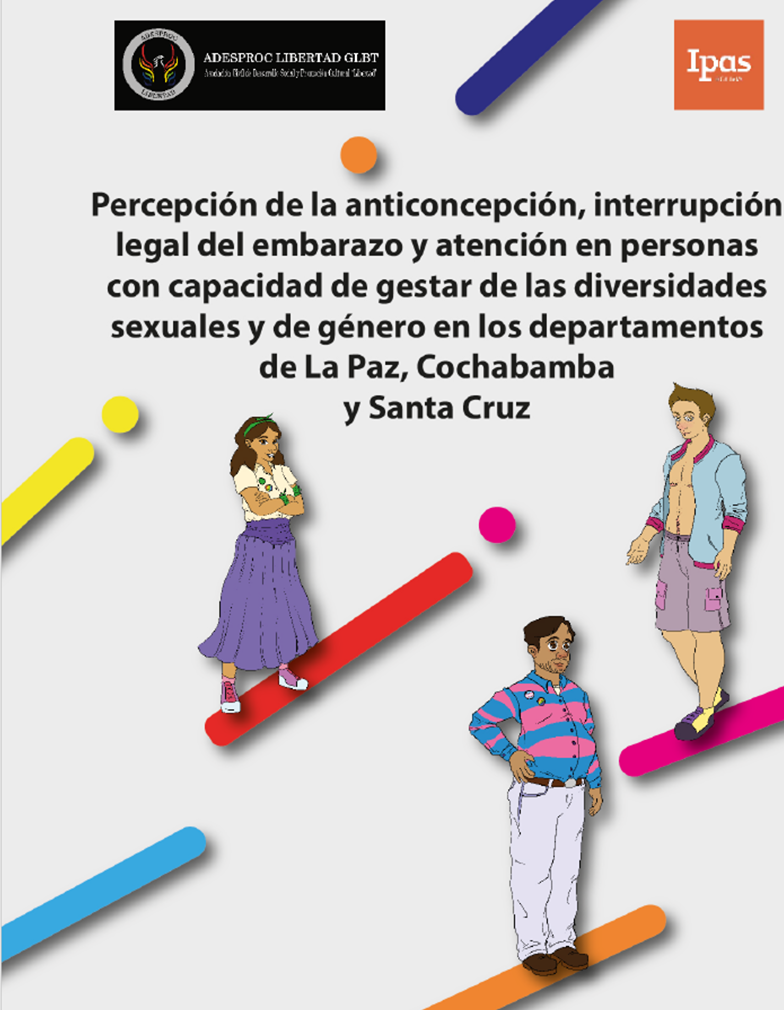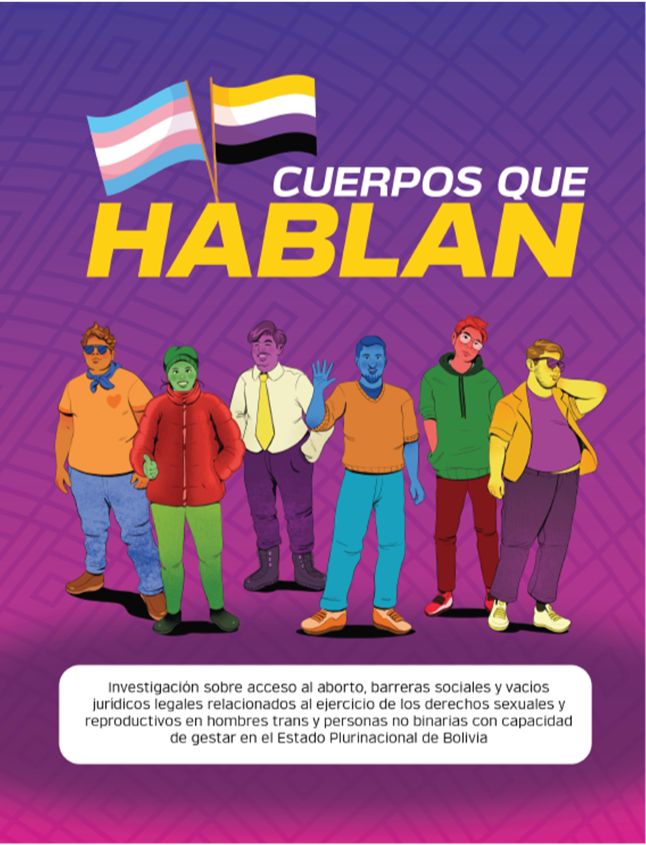In most places in the world, people who identify as LGBTQ+ face high levels of stigma and discrimination when seeking reproductive health care—and Bolivia is no exception, according to research by Ipas and partners.
Ipas Bolivia supported three recent studies that uncovered serious issues in reproductive health care for Bolivia’s LGBTQ+ community, including discrimination, legal problems and other barriers. Common themes include verbal abuse, service denial, and fear of disclosing one’s identity. All three reports show that barriers to reproductive health services are rooted in systemic bias and inadequate provider training, prompting calls for targeted legal reforms.
“These three studies expose alarming reproductive health-care challenges faced by Bolivia’s LGBTQ+ community,” says Dr. Malena Morales, director of Ipas Bolivia. “We can see systemic issues that need urgent attention so that everyone, regardless of sexual orientation or gender identity, can access their reproductive rights safely and without discrimination.”
Without bodily autonomy, health care falls short
Comprehensive sexual and reproductive health services are an important part of health care for any individual. For those capable of becoming pregnant—including women, trans men, and nonbinary people—access to comprehensive pregnancy, family planning and abortion care is essential.
The link between LGBTQ+ rights and access to sexual and reproductive health care is undeniable, as both are deeply connected to bodily autonomy over intimate decisions. Both LGBTQ+ rights and abortion rights are continually subject to scrutiny, criticism, restriction, and stigma across the globe. This can make it more difficult for people who identify as LGBTQ+ to access sexual and reproductive health care and can even discourage them from seeking it altogether.
What needs to be done
These studies provide clear recommendations to improve sexual and reproductive health care for Bolivia’s LGBTQ+ community:
- Train health providers: Health-care workers need better training to understand and meet the needs of LGBTQ+ individuals.
- Reform policy: Laws and policies should explicitly protect the reproductive rights of all individuals, including trans men and non-binary people, ensuring safe and legal abortion access.
- Raise public awareness: Educational campaigns are crucial to combat cultural prejudices and misinformation about LGBTQ+ identities and health needs.
Ipas Bolivia is already working to make these recommendations a reality. So far the team has supported local LGBTQ+ organizations with seven meetings and workshops to ensure they know how and when people can access a legal abortion in Bolivia—and to discuss next steps for taking action on the recommendations from this research. Through these events, they also provided education on national abortion regulations and on the WHO guidelines on abortion care, which for the first time include not just women but anyone who can become pregnant.
“With this first initiative to address the recommendations from this research, we’re aiming to raise awareness of sexual and reproductive rights among the LGBTQ+ community—arming people with the knowledge they need to make their own informed decisions about their bodies and health,” Morales says.
Report findings in detail
‘Unequal before the law’
Ipas Bolivia provided technical support to the Ombudsman’s Office of Bolivia in the creation of a report titled “Unequal Before the Law” that details a nationwide virtual survey of people with diverse sexual orientations and gender identities. The survey reveals high levels of violence, stigma and discrimination against LGBTQ+ individuals, despite existing legal protections.
In the survey, 50% of trans men reported pregnancies from sexual violence. Other groups affected by sexual violence and resulting unwanted pregnancy include non-binary individuals (16%) and other gender-nonconforming people (12%). The report also shows that individuals with diverse gender identities have lower access to legal abortion than cisgender people.
With supporters including the Association for Social Development and Cultural Promotion Libertad GLBT, UN Women, Sweden, Hivos Latin America, and the European Union, the report calls for legal and policy reforms to ensure equality and protection for LGBTQ+ individuals.
‘Perceptions of contraception, legal abortion and care for people of diverse sexual and gender identities who can get pregnant’
Ipas Bolivia provided a grant for the Association for Social Development and Cultural Promotion of LGBT Freedom (in Spanish: ADESPROC Libertad GLBT) to research contraception and abortion among LGBTQ+ people in the regions of La Paz, Cochabamba and Santa Cruz. The research contrasts Bolivia’s restrictive abortion laws and low contraceptive use with advancements in reproductive rights across Latin America happening in countries like Mexico and Argentina.
Through interviews with 157 LGBTQ+ individuals, the study identified four main barriers to sexual and reproductive health care, including abortion: discrimination in health facilities, lack of sensitivity among health personnel, insufficient knowledge among both those seeking and those providing services, and fear of stigmatization. Over 81% of interviewees said they would seek abortions for reasons not allowed by current laws, highlighting the need for legal reform.
To address these issues, the study recommends training health providers for sensitivity, advocating for inclusive policies, increasing access to contraception, and supporting legal abortion for those who experience sexual violence.
‘Speaking bodies’
Ipas Bolivia provided funding and technical support to the organization Manodiversa to produce “Speaking Bodies,” a study led by trans and non-binary researchers. They analyzed the social and legal barriers and discrimination faced by trans men and non-binary people in Bolivia regarding sexual and reproductive rights and abortion access. With 54 participants, the qualitative study highlights severe discrimination in health care, where stigma and microaggressions from health personnel deter individuals from seeking necessary services.
The study reveals that Bolivia’s abortion laws still lack specific protections for trans men and non-binary individuals who can become pregnant, blocking access to safe and legal abortion for many of them. In fact, 41% of participants capable of becoming pregnant had undergone abortions with unsafe methods. The research underscores the urgent need for inclusive reproductive health policies and practices to protect and support trans and non-binary individuals.





